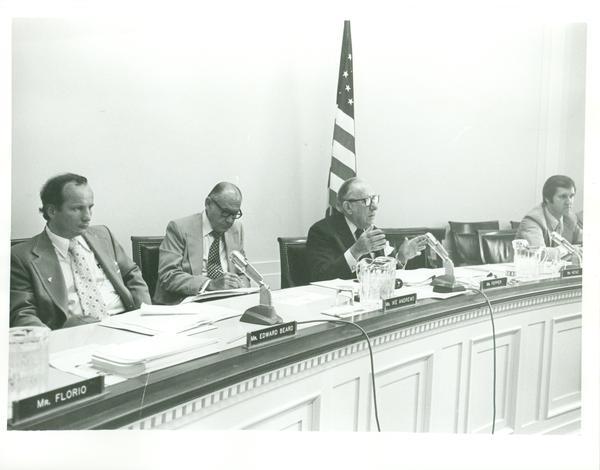In the Summer of 1987, Representative Claude Pepper introduced House Resolution 2654. In it a request was made to establish a 12-member committee charged with providing recommendations to Congress for a comprehensive health care program for all Americans. In October of 1988, Pepper was appointed as the chairperson of the United States Bipartisan Commission on Comprehensive Health Care. The committee’s findings indicated that the majority of Americans were prohibited at some level from obtaining adequate health care due to the high costs associated with medical treatment, particularly for long-term and catastrophic illness.
Throughout his career, Pepper was uniquely devoted to the idea of comprehensive health care coverage. In 1937, during his first term as Senator, he co-authored legislation establishing the National Cancer Institute. Throughout the remainder of his career, he was instrumental in establishing an additional thirteen National Institutes of Health. Beginning in 1946, Pepper began efforts to muster support for the Wagner-Murray-Dingell Bill. A proposal to institute a national health care and hospital system intended to ease the hardship that America’s health care system imposed on those least able to afford it, the bill failed to gain traction or support.
For the next thirty years, the possibility of a National Health Care system continued to remain on the forefront of Pepper’s agenda. His last legislative efforts began in 1987. After the Bipartisan Commission, Pepper and his colleagues in the House began to craft what would become the Medicare Catastrophic Coverage Act of 1988. The bill was designed to improve acute care benefits for the elderly and disabled, which was to be phased in from 1989 to 1993.The act was meant to expand Medicare benefits to include outpatient drugs and set a cap on out of pocket medical costs. It was the first bill to significantly expand Medicare benefits since the program’s inception. Although the bill passed easily with initial support, the House and Senate repealed it a year later in response to widespread criticism over projected government costs.
Senator Pepper died in May of 1989, not seeing his goal of a national health care system achieved. Today the work toward that goal continues, and if you are interested to learn more about the history and evolution of the path toward affordable and equitable health care coverage for all Americans, the Pepper Papers, and all of our political collections, are searchable online.

Claude Pepper speaking at the Aging Subcommittee on Health Maintenance and Long Term Care hearing. Claude Pepper Papers Photo B(1397)-01.